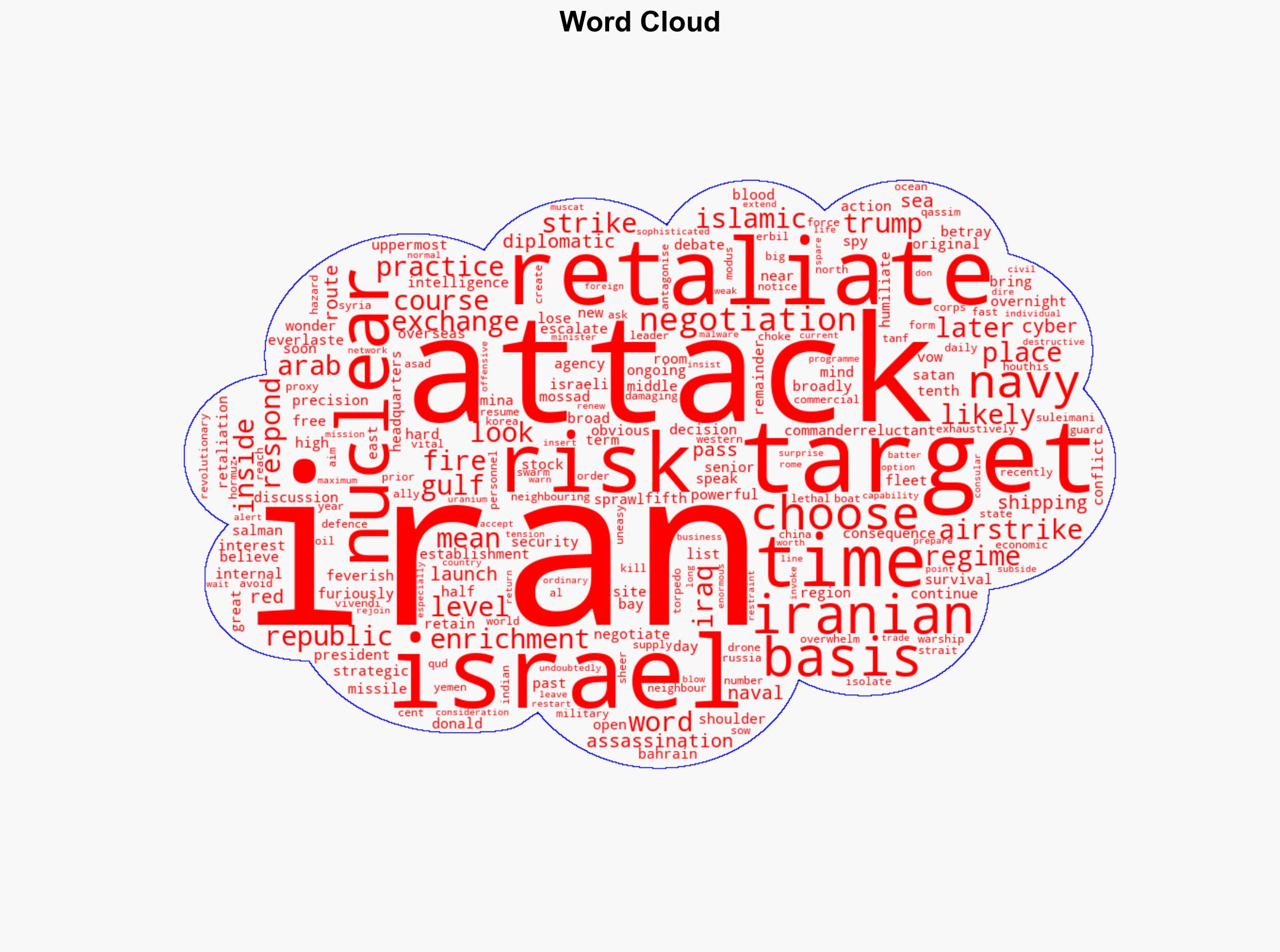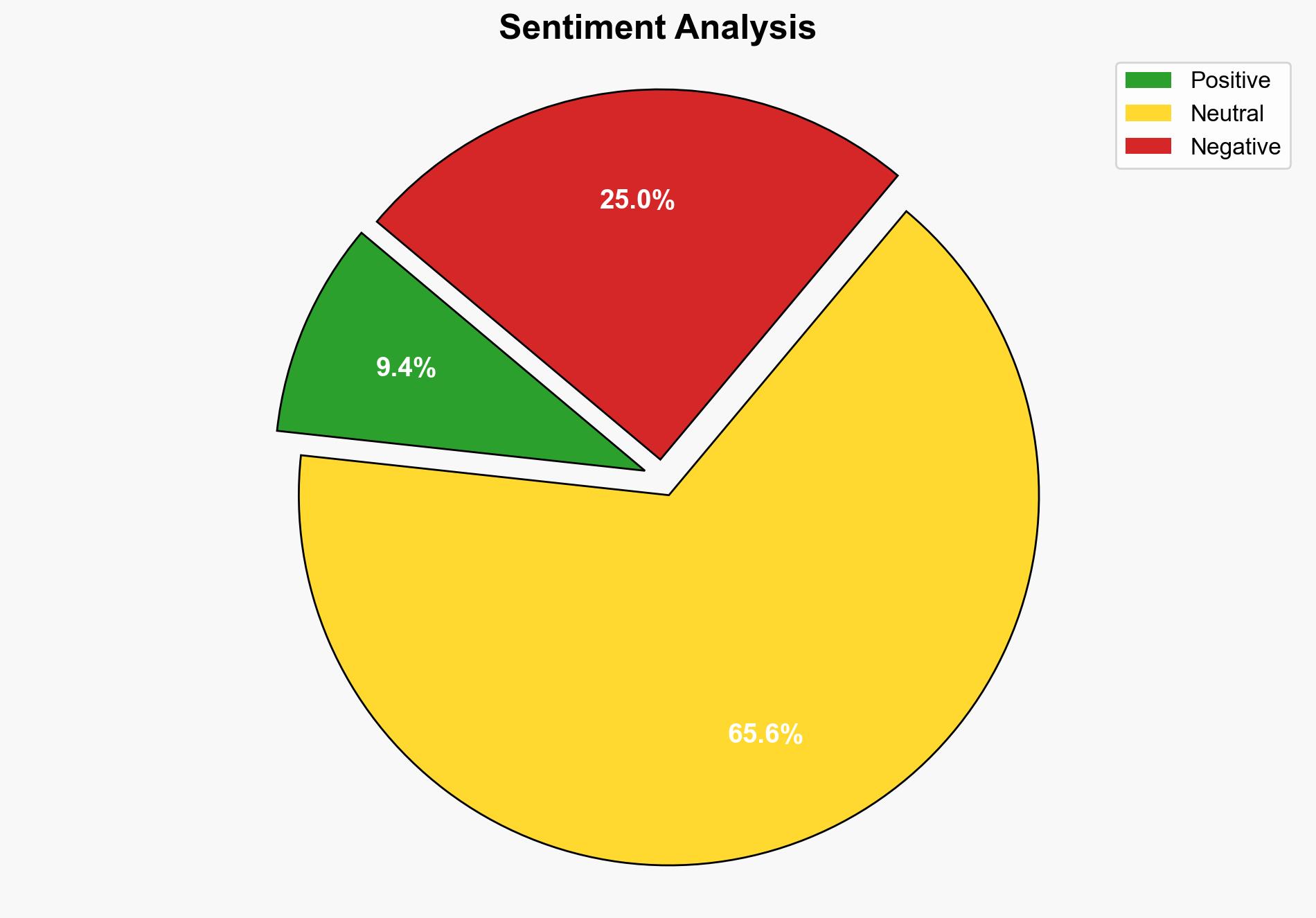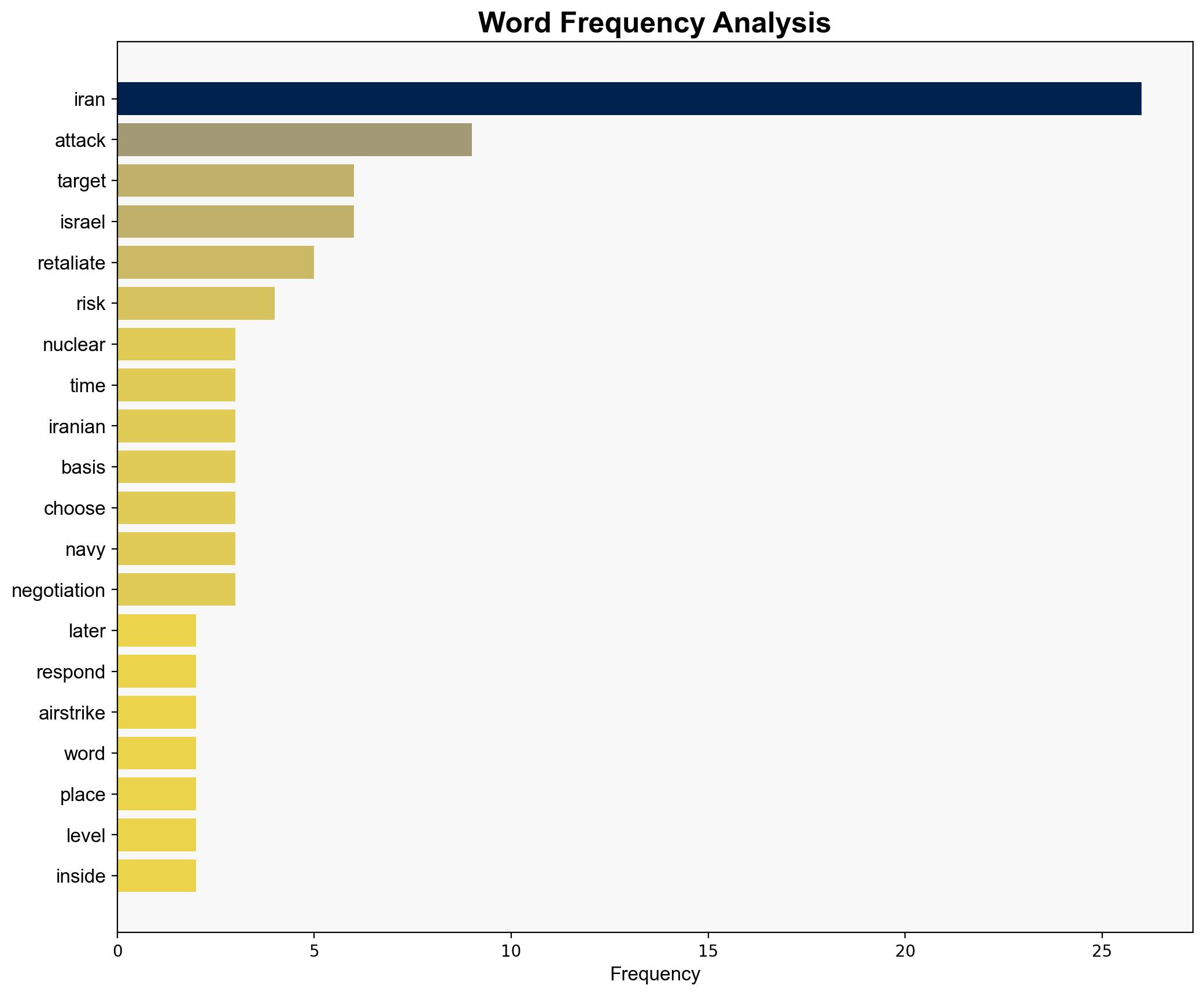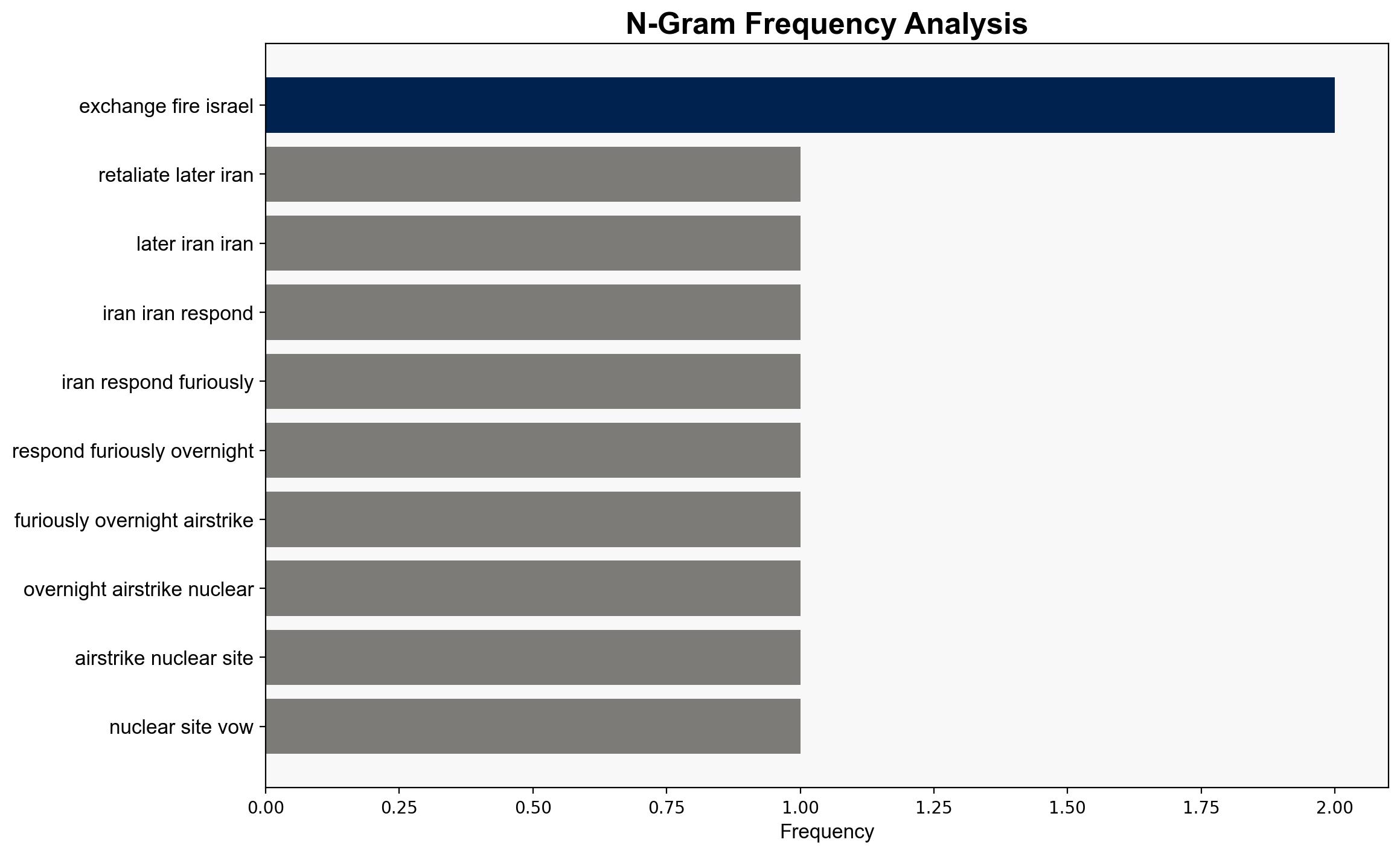Retaliate now later or never What Iran might be thinking – BBC News
Published on: 2025-06-22
Intelligence Report: Retaliate now later or never What Iran might be thinking – BBC News
1. BLUF (Bottom Line Up Front)
Iran is currently deliberating its response to recent escalations, including a potential retaliatory strike against Israel or other regional targets. The decision-making process is influenced by internal debates on the risks and benefits of immediate versus delayed action. Strategic considerations include the survival of the regime, regional stability, and international diplomatic relations. Recommendations focus on monitoring Iran’s military movements and diplomatic signals to anticipate potential actions.
2. Detailed Analysis
The following structured analytic techniques have been applied to ensure methodological consistency:
Causal Layered Analysis (CLA)
Surface events include recent airstrikes and Iran’s vow of retaliation. Systemic structures involve regional power dynamics and military capabilities. Worldviews reflect Iran’s perception of threats from Israel and the U.S. Myths pertain to Iran’s historical narrative of resistance and survival.
Cross-Impact Simulation
Potential Iranian retaliation could destabilize neighboring states, disrupt global oil supplies, and trigger broader conflicts. Economic dependencies, such as oil trade through the Strait of Hormuz, are critical factors.
Scenario Generation
Scenarios range from immediate military retaliation to prolonged diplomatic engagement. Each scenario considers varying levels of regional conflict and international response.
Network Influence Mapping
Key influence relationships include Iran’s connections with proxy groups in Iraq and Syria, as well as diplomatic ties with Russia and China. These relationships impact Iran’s strategic decisions and potential support networks.
3. Implications and Strategic Risks
Immediate retaliation by Iran could escalate into a broader regional conflict, affecting global oil markets and international security. Cyber threats from Iran, in collaboration with allies like North Korea and Russia, pose significant risks to critical infrastructure. Prolonged tensions may lead to increased military presence and heightened alert levels in the region.
4. Recommendations and Outlook
- Enhance surveillance and intelligence-gathering on Iranian military movements and cyber activities.
- Engage in diplomatic efforts to de-escalate tensions and encourage dialogue between Iran and regional actors.
- Prepare for potential disruptions in oil supply chains and implement contingency plans.
- Scenario-based projections:
- Best case: Diplomatic resolution and resumption of negotiations.
- Worst case: Full-scale military conflict involving multiple regional actors.
- Most likely: Limited skirmishes with ongoing diplomatic efforts.
5. Key Individuals and Entities
Qassim Suleimani (deceased), Iranian Revolutionary Guard Corps, Mossad, Houthis.
6. Thematic Tags
national security threats, cybersecurity, counter-terrorism, regional focus





